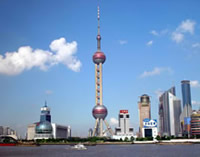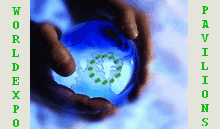|
|


ADVERTISEMENT
Buy Your own advertising
spaces!
.
Download Adobe Acrobat Reader to open [PDF] files.
Recent Visitors
Sustainable development
"People are the starting point for sustainable development"

We often hear about three pillars in connection to sustainable development: environment protection, economy and society. It's very noticeable, however, that the most significant factor - without which the concept itself could not be understood -, the fourth pillar, is usually left out. This is the human factor and, more importantly, people's relationship with environment, with the economy, and, most importantly, with other humans. Mónika Fülöp talked to Professor Guy Turchany about the relationship between people and sustainable development.
What kind of relationship do you see between people and sustainable development?
I think the French writer and Minister of Cultural Affairs, André Malraux expressed this relationship back in 1962 very well. He said that the "21st Century will be spiritual, or it will not be at all" - and with this, he gave us a hard lesson to learn.
Of course, back then we didn't know the first thing about environment protection, but Malraux sensed that the major problem of the 21st Century will be the soulless approach of people, and, I have to admit, it looks like he was right. Reaching the end of the 21st Century depends on whether we can change our set of values or not. Today what's a man's worth depends on how much he has in his wallet or what his title is. For example, if I tell an illuminative story to someone saying that I heard it from a worker, it will not have as much success as if I told it as my own - then people would thank me, the Professor, and not me, the person, for telling such an educative tale...
This materialist set of values led us to focus only on working more, earning more, becoming more successful and more powerful. But my opinion is that this is only because we're not at peace with ourselves. And this is wrong. One of the main drivers of sustainable development is that people accept themselves and have a goal in life. Vaclav Havel, the ex-Prime Minister of the Czech Republic once said that the most awful thing in today's society is that people don't have a goal in life and what's worse; this doesn't even seem to bother the...
I think love really is in short supply these days, so much that we're beginning to forget what it actually mean...
This is a very important remark. If we are to talk about sustainable development, first we need to change our set of values. The basic value should be the love we have for ourselves and to other people. A person can only take the needs of next generations into consideration if he turns to others with love and doesn't only concentrate on himself selfishly. The teachings of all religions are based on love, but they also teach something equally important: abnegation. Love could only be practiced if we learn to say 'no' to ourselves.
This sounds like we should separate our needs from our greed, doesn't it? What do you think, how should we take the first steps towards sustainable develop- ment?
The first thing that should be understood in connection to sustainable development is that people are both the reason and the cause. It's us, people who put the Earth is such a situation and it is us, the people who suffer the consequences. The problem lies not with the environment, but with the human environment. Realizing this would be a good start... The other major factor, as I mentioned above, is love, and this is where the activity of the church and sustainable development can come together. After coming to the realization that the problem is really caused by us, the next thing we should do is to have a deep self-assessment.
The concept of sustainable development is often criticized on the grounds that development in itself bars out sustainability.
This is because development and growth are confused regularly. Growth is a material thing that could be measured by numbers and digits; it's something finite. Development, on the other hand is always an internal process. Society develops, for instance, when it becomes better, and not when it has more. A good example of societal development was the abolishment of slavery. When the concept of 'sustainable development' was adopted by the Brundtland Commission, many did not realize that the term has multiple interpretations...
Of course, this ambiguous nature has been very comfortable for some politicians - everyone can interpret sustainable development as they wish. Interestingly the Maastrich Treaty has the same error: it talks about sustainable development, and then a few pages later it talks about sustainable growth. And as we know, growth is limited. It would be extremely important to have a clear definition. We are currently working on this with the UIDD (Université Internationale du Développement Durable) and the Hungarian Club of Sustainable Development, but we keep bumping into political barriers. Which politician would be brave enough to talk about a relative decrease in the quality of life as opposed to constant growth?!
If there was such a political entity, most probably the economy sector would talk about a decrease in competitiveness...
Quite correct. But hold one for a minute! Why was the European Community initially established by the founding fathers? The basic idea was for member states to offer mutual support and to advocate the interests of the others. And, compared to this, what has the EU become? It became a trotting race of competing enemies. No one realizes that in a race there's only ever one winner, all the others are losers! The Eastern European states were welcomed by the EU, but they forgot to mention that there is a price to pay... And they also forgot to tell them that they will have even less than what they had at the time of accession. Now, when these states are in trouble, the only thing they get is a "sorry" and a shrug of shoulders. I don't think this is Europe, and I don't believe that this is sustainable development. I don't care that the agriculture is completive only above 1,000 hectares. I care about having farmlands of 30 hectares that are capable of securing a living for a family. This was the spirit the EU's founding fathers originally had in mind - I was one of the lucky few to have known them in person...
And thus we come back to the beginning: what is it that we should change first?
Primarily, our set of values. I know that this takes a long time, but fortunately more and more young people think that what we're doing is wrong and not sustainable from a societal, or from an economical or environmental perspective. I think it's very possible that the change will be initiated by these young people and I hope that a revolution of ethics will save what's left to be saved. And once this happens, there will no longer be competing enemies; but rather supporters who will strive to solve problems mutually.
As I said many times before, investment should be made into people and not banks, because people are the future. And this new kind of approach is something that has to be formed at a very early stage in life and by following good examples. Although it will take a great length of time to achieve a worldwide change in approach and in the set of values, the key point is to start it. And once it's started, others will quickly follow suit.


